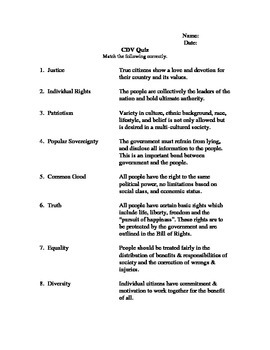
Click on the screenshot to read Kewku’s whole article
#Democratic party quiz series
The series will come out every Wednesday, but I’m not going to be paying a lot of attention. It will present not a single, cohesive vision but an array of ambitious ideas from across the ideological spectrum to revitalize and renew the American experiment. This is the idea behind Snap Out of It, America!, a new series from Times Opinion. What if it could recover that spirit of invention and restlessness, the risk-taking that formed this country? What would it change? What could it be? But America in its youth was a country confident and unafraid to confront the future. The economic boom of the industrial age was fueled by the blood and sweat of exploited workers the country’s westward expansion came at the expense of Native Americans. Not all of the big changes were completely - or even ambiguously - good. Wars, which once smashed through gridlock, no longer lead to collective action. As the historian Daniel Immerwahr argues in a guest essay, hard partisanship makes it difficult to create coalitions for sweeping changes. The “direction” of the results-whether you’re more conservative or more liberal-is unchanged.There are, of course, reasons for this settling. As of this update, the quiz now employs a basic statistical correction to more accurately reflect the extremity of one’s politics. A person who reported themselves as “very liberal” or “very conservative” tended to receive scores that were artificially close to the center. The biggest weakness we discovered is that the results from our survey were less distributed across the spectrum than the figures for people’s self-reported ideologies. This is a particularly strong correlation given the wide degree of personal variation in taste that is intrinsic to this sort of research. 10, 2014, 11:00 a.m.: It works! Our analysis of 17,000 responses from readers who chose to report their actual ideology found a strong correlation (r=0.604, for those of you keeping score) between a person’s self-reported ideology and the output of the quiz. And many people can’t place themselves along the liberal-conservative dimension – such as libertarians, or people who find wisdom on both sides on different issues.įor more in-depth surveys on a variety of subjects, please visit. Many conservatives love exotic cuisines and the Metropolitan Museum of Art many liberals have neat desks and hate cats. But of course people are highly variable. We added them all together (weighting some more than others) to create a short scale with moderate predictive power. Liberals are more universalist than nationalist they tend to support the United Nations more, and to wish that the boundaries between countries and the divisions between nations would fade away (as in John Lennon’s song “Imagine.”)Įach of these items is only a weak predictor of ideology. Conservatives, therefore, typically show less ambivalence about American history and have a stronger preference for dogs, who are more loyal and obedient than cats.

Conservatives, for example, tend to value respect for authority and group loyalty more than liberals do. We also drew on several surveys from for data about how values correspond to politics. They are more organized (neat desks), punctual, and self-controlled (rather than emphasizing self-expression).

Conservatives score higher than liberals on the trait of conscientiousness.
#Democratic party quiz Pc
Hence, they are more likely to use a PC than a Mac and are more likely to stick with that PC’s default browser, Internet Explorer. Conservatives are more likely to stick with what is familiar, what is tried and true. They have less conventional notions of what is proper in a romantic relationship, so solo pornography consumption is OK. Research by Sam Gosling, at the University of Texas, has found that liberals generally score higher than conservatives on the trait of “openness to experience.” They are more likely to seek out new experiences (such as fusion cuisine), choose to watch documentaries, or enjoy art museums. We created this survey by drawing on several sources.


 0 kommentar(er)
0 kommentar(er)
